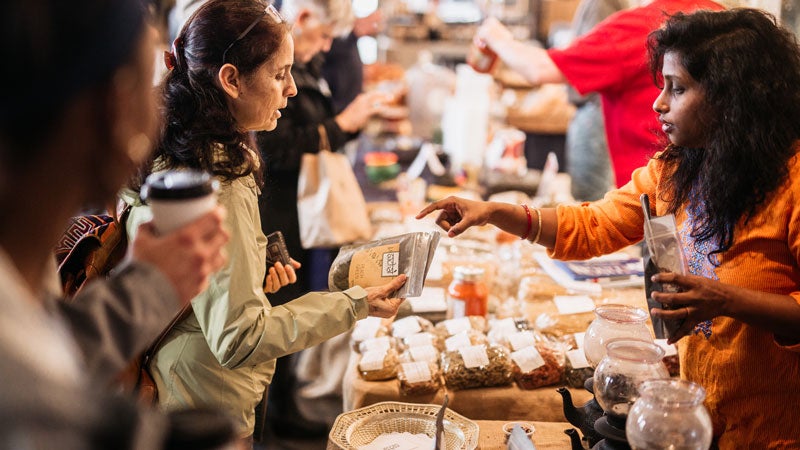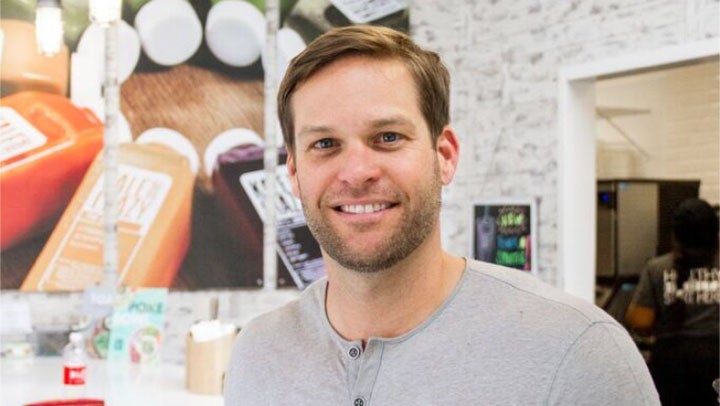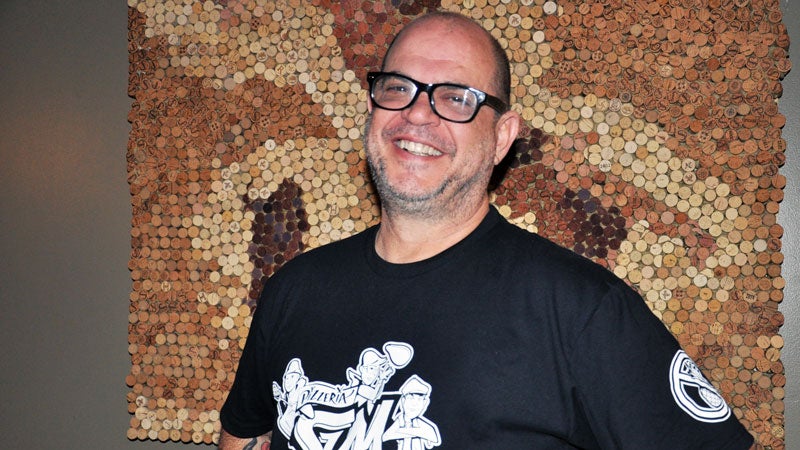If you bumped into Clint and Rebecca Denson at Seeds Coffee Co., you would think they were a regular Homewood couple enjoying a cup of tea while watching their three kids play in the outdoor garden space out back. But if you asked them even one simple question about tea, you’d know that their passion for what they are drinking, from its growth to its sourcing, is unparalleled.
The couple is behind Sachai, a tea company named for the word “truth” in Hindi that specializes in quality loose leaf tea from Indian tea gardens, as well as authentic Indian chai. They package loose leaf assam black, bergamot black, peach green, herbal citrus and other loose teas and concentrated Chai from West Homewood, right near Seeds, which ties strongly into their story too.
When Seeds started up, it needed someone to run the tea program. Clint, a sweet tea aficionado born and raised in Mississippi, where his mother is the mayor of their hometown, took the role with two qualifications: “I liked tea from my time in Ghana drinking tea in the morning, and my wife is from India.”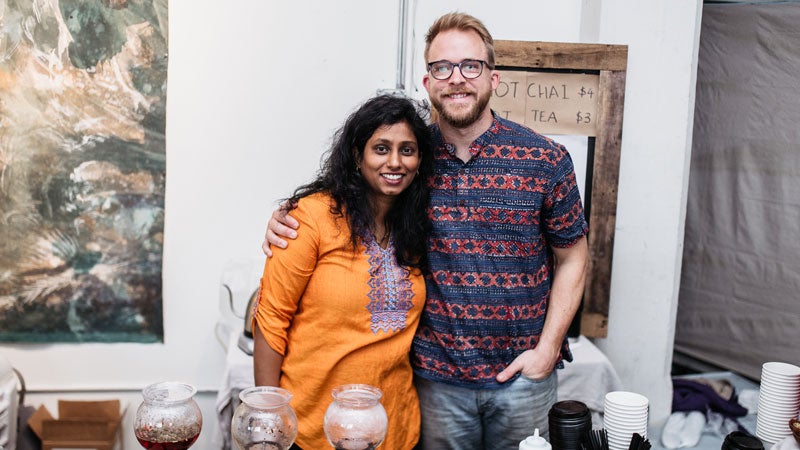
“Seeds does direct trade, working directly with farmers,” says Rebecca, who founded Sachai Tea Company, alongside Clint. “So we didn’t want to just order tea, we wanted to directly buy tea from India, the second or third largest producer of tea, but we couldn’t ever source it back to India. All the sources were going to Europe.” The duo was frustrated at the seeming dead end.
So, when their first children, twin girls, turned one, the couple planned a two-month trip to India to find the source themselves. “Clint and I both love adventure, we thrive in it,” Rebecca says. That statement was more than clear as she described walking through various tea gardens, each of them with a baby strapped to their chests.
You could say that Clint and Rebecca are not easily deterred. Their personal story is one of endurance. While they live in the Birmingham area and met at Samford, during their courtship years, Rebecca was studying community development for third world countries, and Clint was traveling back and forth to an orphanage in Ghana, where he worked for two years. “I was in India while Clint was here, or he was in Africa while I was here,” says Rebecca, laughing as she looked back on their time together. Their lessons in persistence paid off, not just in their marriage but also in how they started their tea business.
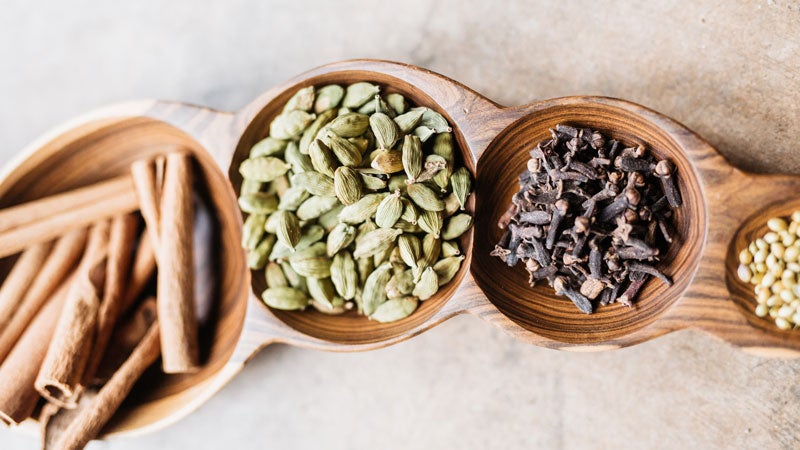 “We’ve been to Indonesia and China,” says Rebecca, ticking off a list of their travel destinations, often with the growing family in tow. “India was unique, but the tea industry was exploitative. The companies would reinvest profit in their crop, not their laborers. We work with farmer who use human labor instead of machine labor. These are skilled people with at least 10 years (of) experience hand picking the top two leaves in a bud to fill a quota of 150 pounds per day. And for their labors…were paid $3 per day.” The company can then sell that tea, once processed, for up to $1,000.
“We’ve been to Indonesia and China,” says Rebecca, ticking off a list of their travel destinations, often with the growing family in tow. “India was unique, but the tea industry was exploitative. The companies would reinvest profit in their crop, not their laborers. We work with farmer who use human labor instead of machine labor. These are skilled people with at least 10 years (of) experience hand picking the top two leaves in a bud to fill a quota of 150 pounds per day. And for their labors…were paid $3 per day.” The company can then sell that tea, once processed, for up to $1,000.
So Clint and Rebecca started looking for small farms, ones that couldn’t afford to figure out how to export their tea, and be a voice for them. “How do we empower the farmer with two acres, who processes his tea fairly, to access the international market?” Rebecca asked. The answer came when they connected with a co-op in India of 20 farmers that is paying more than the standard. “Instead of 10 cents per kilogram, they’re paying fifty,” Rebecca says.
“This co-op has its own garden, processes everything organically, and is concerned about the workers and how they live,” she continues. “There are no pesticides, which means no one is breathing them in,” an important note when, as Rebecca notes, “The average life of a tea worker is 45 years due to the daily sprayings.”
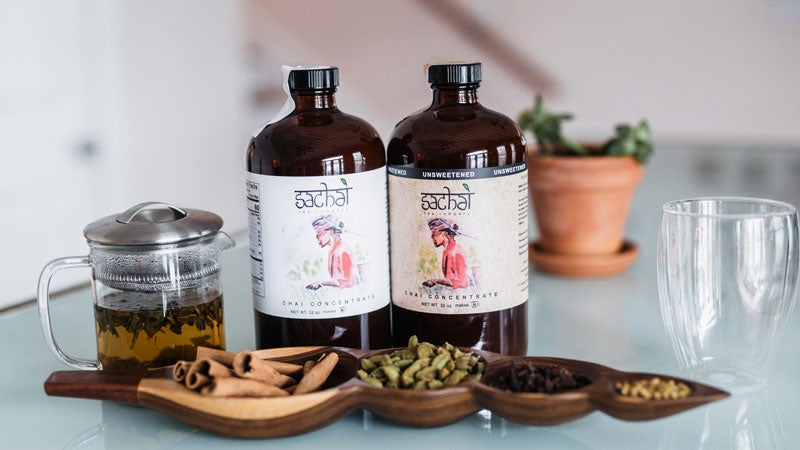 For Rebecca and Clint, while the initial mission was sourcing tea, the steps to getting there opened their world to the industry around them. “When the farmers told us, ‘It’s our duty to organically farm because we care about the livelihood of our people,” says Clint, “then we can’t not do it.”
For Rebecca and Clint, while the initial mission was sourcing tea, the steps to getting there opened their world to the industry around them. “When the farmers told us, ‘It’s our duty to organically farm because we care about the livelihood of our people,” says Clint, “then we can’t not do it.”
“Workers have needs, and there’s a never-ending path to filling needs. That can’t be our goal,” says Rebecca. “We have to work to empower farmers to change the culture and the mindset that you can only be an employee of a big tea company.”
At present, the couple is working on their importing license. Without it, they must connect with importers or ship directly, which gets expensive quickly, with 300 pounds costing about $1,500 to airship. While the road may be slow, if there’s anyone who can stick it out, it’s Clint and Rebecca.
Find Sachai Tea Company teas at Seeds Coffee Co., The Market at Pepper Place and other local retailers, or place an order at sachaiteacompany.com.
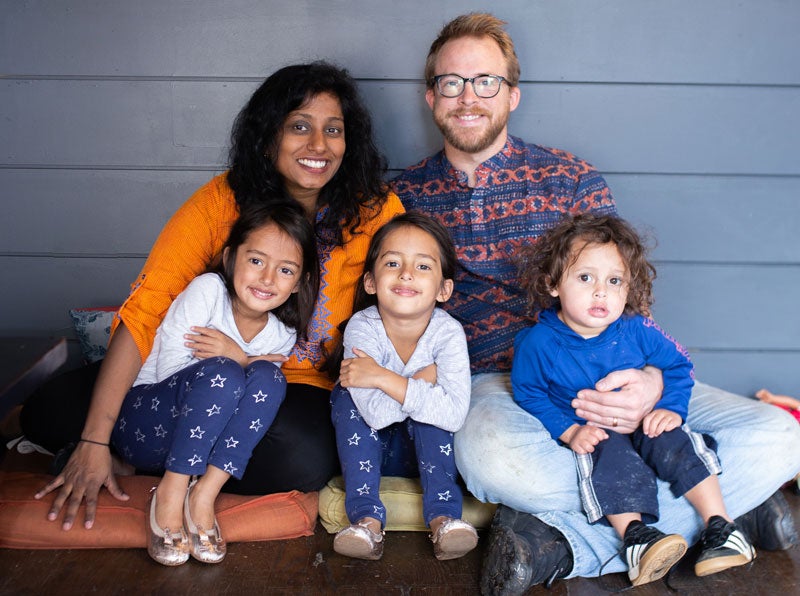 Meet the Denson Family
Meet the Denson Family
Kids: Zion, age 2, and Grace and Charis, who will be 5 in March
Favorite Homewood Outing: Homewood Public Library
How They Met: As students at Samford in 2010
Busiest Year: “We got engaged in 2013, married in 2013, and found out we were expecting in 2013,” says Rebecca
Favorite Tea Tool: A cast iron tea pot and anything by Hario
Mug or Cup: Miir tumblers or a camp mug, plus stainless steel cups with lids for the kids
Tea Trend on the Rise: Herbal teas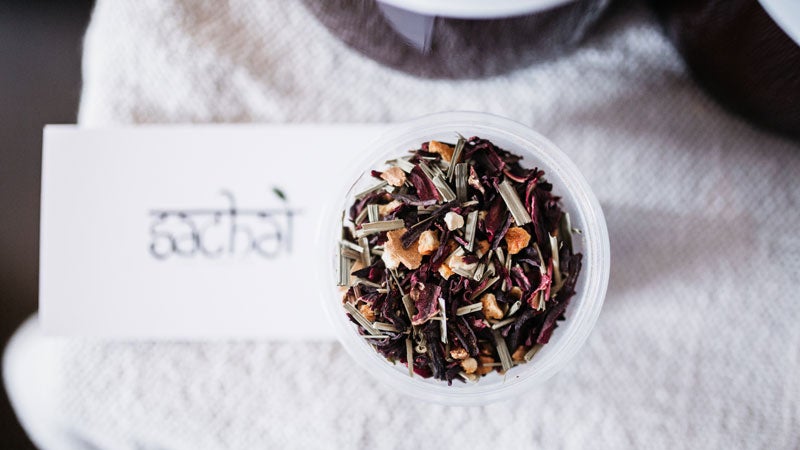
Clint on How to Prep the Perfect Cup
Don’t get intimidated. Put the tea in a cup, stir in water, then strain. How long you leave the tea leaves in the water depends on the quality of the tea. With high quality leaves, don’t steep it long. Lower quality leaves need a longer steep time, but with higher quality leaves, you can actually steep the same leaves four or five times and get quality cups of tea each time. I’ve made tea for groups of people at our house and only used a small amount of tea overall.”

